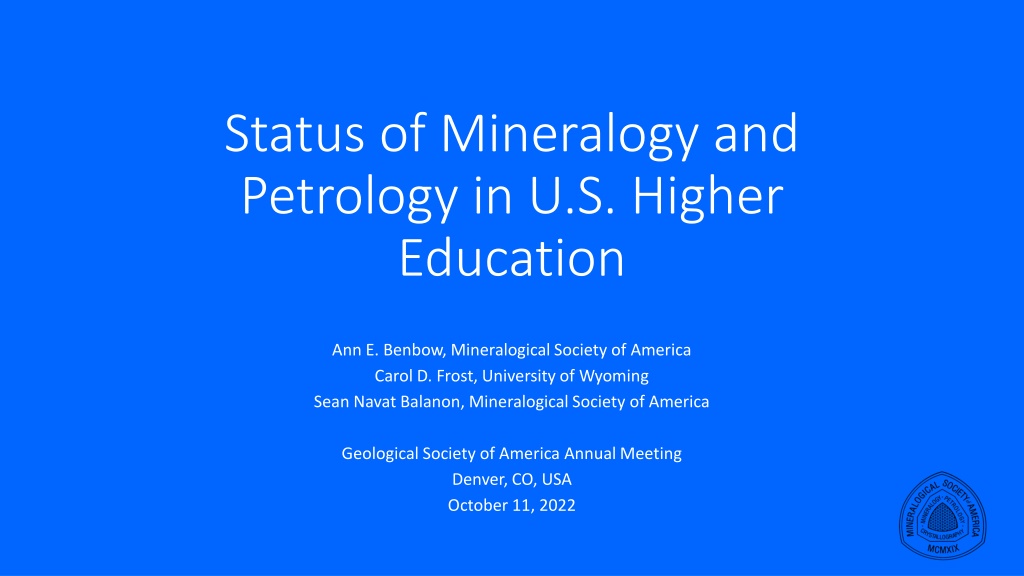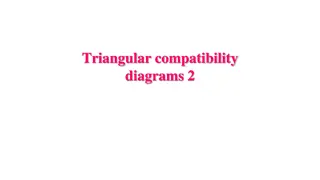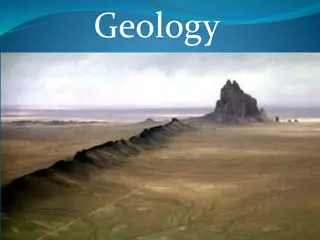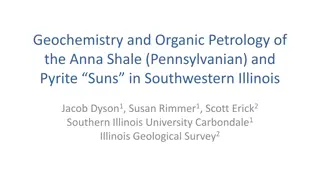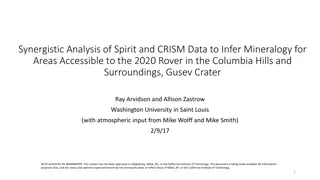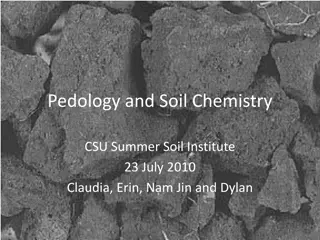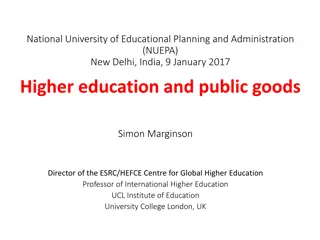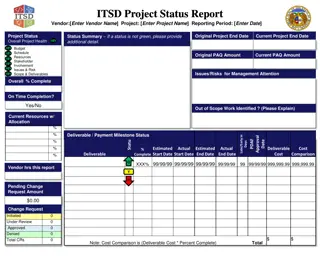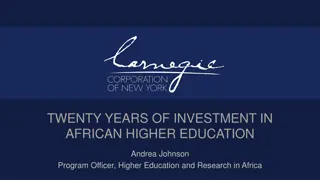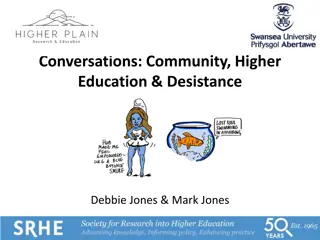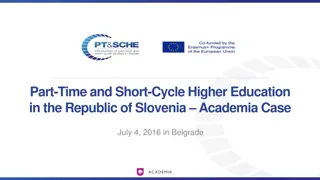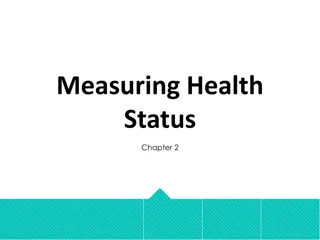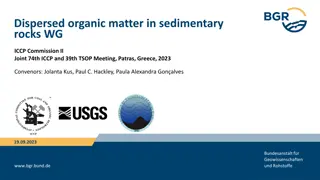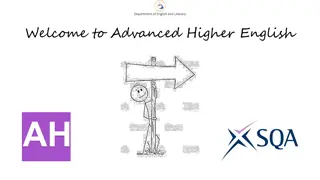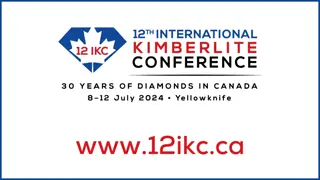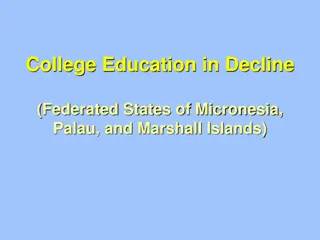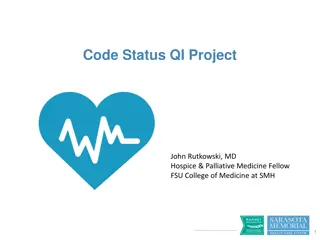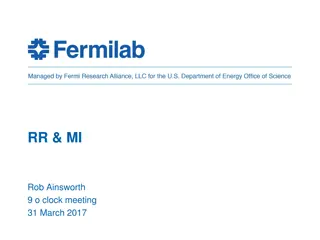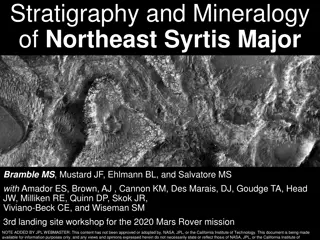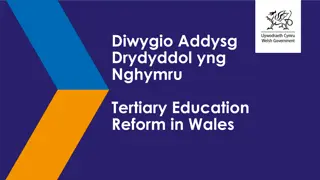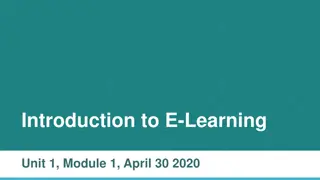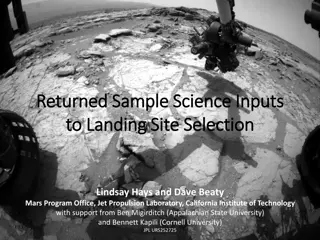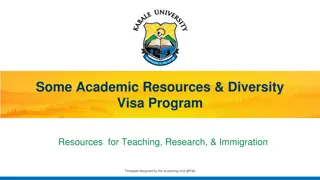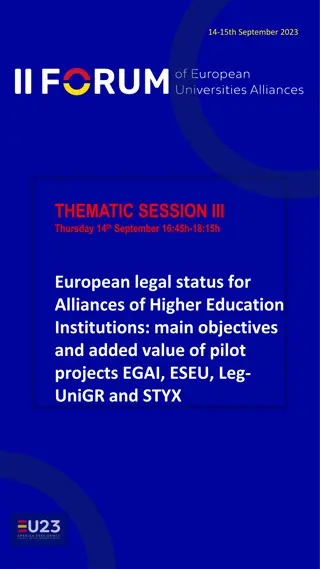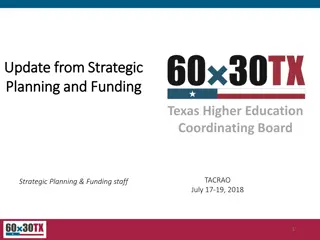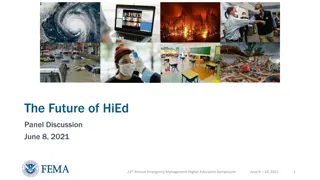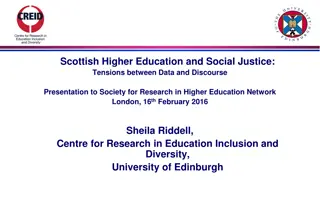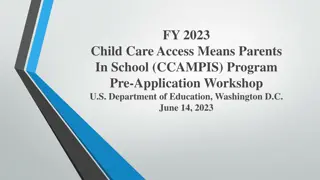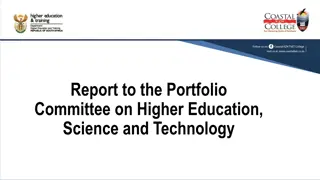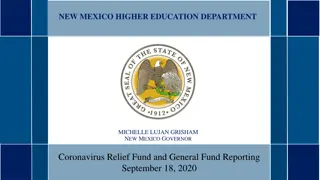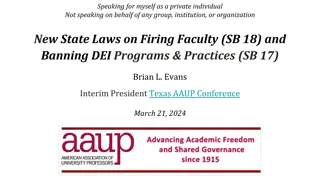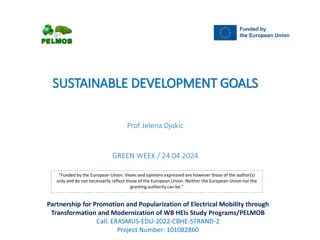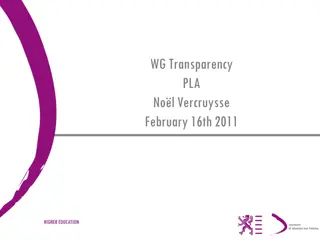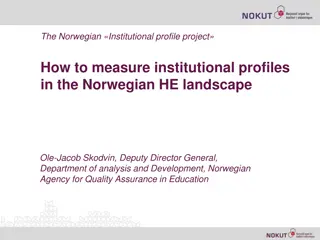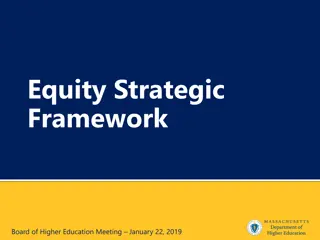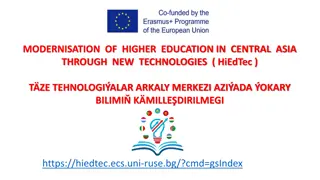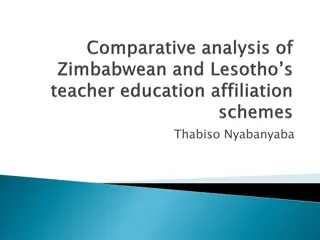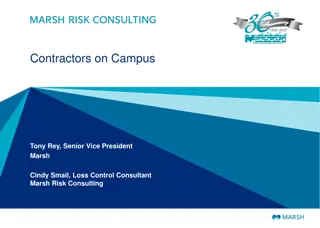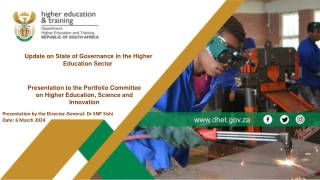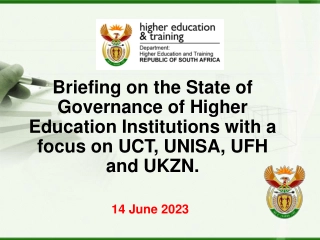Status of Mineralogy and Petrology in U.S. Higher Education: Overview and Findings
The expertise of mineralogists and petrologists is crucial as society shifts towards clean energy sources and advanced technologies. A study by the Mineralogical Society of America explores the current status of mineralogy and petrology teaching in U.S. institutions of higher learning, assessing enrollment, graduation rates, and important knowledge and skills highlighted by faculty members in the field. The research aims to support the education and training of geoscientists in these critical disciplines.
Download Presentation

Please find below an Image/Link to download the presentation.
The content on the website is provided AS IS for your information and personal use only. It may not be sold, licensed, or shared on other websites without obtaining consent from the author. Download presentation by click this link. If you encounter any issues during the download, it is possible that the publisher has removed the file from their server.
E N D
Presentation Transcript
Status of Mineralogy and Petrology in U.S. Higher Education Ann E. Benbow, Mineralogical Society of America Carol D. Frost, University of Wyoming Sean Navat Balanon, Mineralogical Society of America Geological Society of America Annual Meeting Denver, CO, USA October 11, 2022
Overview Overview The expertise of mineralogists and petrologists is critical as society transitions to clean energy sources and advanced technologies, while sustaining a healthy natural environment. To assess the training of these geoscientists, in mid-2020, the Mineralogical Society of America s (MSA) Council voted to support a baseline study examining the status of mineralogy and petrology teaching in U.S. institutions of higher learning.
Broader Motivations for the Study Many geoscience-themed societal grand challenges involve connections between spheres of the Earth system Mineralogy and petrology concepts, skills, and competencies are fundamental to these grand challenges Mineralogy and petrology students need a strong foundation in these disciplines and to be able to work across domains. Source: Vision and Change Report, National Science Foundation
Methodology and Limitations Methodology and Limitations were faculty in colleges and universities. The survey was revised after the pilot and emailed to 174 academic MSA members in all 50 states. 74 completed surveys were returned from 73 institutions in 37 states. Respondents ranged in years of teaching from two to 40 years. The study was limited to U.S. institutions and the data were dependent upon voluntary responses. Not all respondents completed all survey items. MSA developed a survey, which was piloted in 2020 by 20 MSA members who
Status of Courses Status of Courses (1)
Important Knowledge and Skills in Mineralogy and Petrology Mineralogy (in descending order of mention by respondents): Important Knowledge and Skills in Mineralogy Chemical composition of minerals Conditions for forming minerals Thinking in 3D Minerals and society Physical and chemical properties of minerals Problem-solving; thinking logically Rocks and their relation to minerals Optical mineralogy Observations to interpretation Using instrumentation Petrology (in descending order of mention by respondents): Mineral identification Crystal structure relating to mineral properties Petrogenesis Rock identification and description Knowledge of Earth processes through rocks Use of observational skills and tools (including lab equipment) Relationship between chemistry, minerals, and rocks Using data and databases to solve scientific problems Thermodynamics applications in petrology Use of phase diagrams in petrology Conducting a research project and presenting results Rock classification schemes
The Job Market (2) The Job Market (2)
The Job Market (3) The Job Market (2)
Teaching Suggestions Teaching Suggestions Make connections to society Focus on applied/research aspects of the fields Experience with instrumentation (SEMs, XRD, etc.) Make connections to other sciences, such as materials science and engineering Focus on careers Focus on transferable skills Teach in a broader geological context Don t water down or combine mineralogy with petrology Include fieldwork and real-world projects Make the course fun Start from where students are
Key Findings Key Findings Over the past five years, the trend in enrollment in mineralogy and petrology courses is decreasing. There is an emphasis on teaching content in mineralogy and petrology courses. Teaching suggestions, however, note the importance of teaching that content in context and including technology to attract more students. Although environmental companies are doing much of the hiring of geoscience graduates, mining is still perceived as having the greatest need for those with min/pet knowledge. There is strong support for a mentorship program in mineralogy and petrology with suggestions that employers should play a role in such mentorships. There is a perceived decrease in demand for graduates who are trained in mineralogy and petrology concepts and skills.
Outcomes and Next Steps Online Teaching Resources: MSA, with the permission of the survey respondents, will add their teaching suggestions to its collection of teaching resources. Webinar Series: MSA plans to offer a series of webinars by faculty who have modified their instruction to attract more students. Mentorship Program: 70 percent of respondents were willing to be mentors. MSA is exploring establishing such a program, particularly with the involvement of potential employers.
Thanks and Contact Information Thans and Contact Information complete, thoughtful, and insightful responses made this study possible. MSA wishes to thank all its members who participated in this study. Their We plan to repeat the study every two years. Contact: Ann Benbow, MSA Executive Director abenbow@minsocam.org
